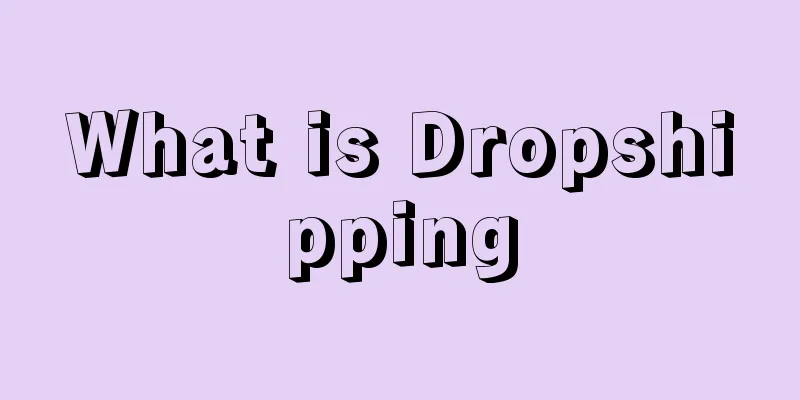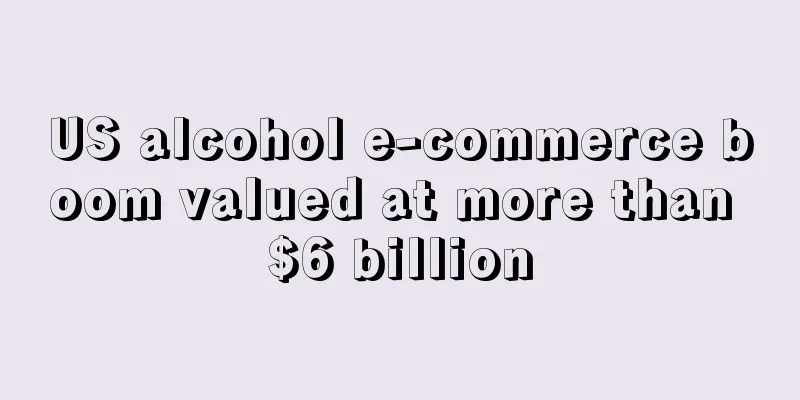The final reckoning! Many sellers were scanned again

|
As the peak season approaches, Amazon’s new round of strict inspections continues!
The cross-border e-commerce sales peak season in the second half of the year is approaching. The eve of the peak season is the peak period for Amazon to rectify illegal behaviors. Recently, Amazon sellers’ accounts have been blocked one after another. This time, the platform has targeted CPC.
Yienjun reported on related issues some time ago. This wave of review has not decreased in intensity over time. More sellers have been involved in the CPC storm, and many have had their accounts blocked and their links removed. Judging from the account blocking, the platform has zero tolerance for CPC qualification fraud. Those sellers who had managed to get through before have almost all suffered "revenge".
In fact, the platform has also increased its review of dangerous goods. Currently, many sellers have been affected. Many sellers stated that their products had passed Amazon’s dangerous goods review before shipment, but the dangerous goods review was triggered again after the products entered the warehouse, and they were still not spared after submitting the information.
In addition, according to sellers’ feedback, in addition to CPC issues, there are also many cases where products are removed from the shelves due to violations of the restricted product policy, and the category is tampered with. One seller said that the product was labeled as "containing prescription drug ingredients", and even though it was not the case, the platform still did not approve the seller's appeal. Faced with "unwarranted disasters", many sellers said they suffered heavy losses.
Industry insiders interpreted that Amazon's frequent actions may be related to a recent policy. The U.S. Consumer Product Safety Commission ( CPSC) recently stated that Amazon "fully meets" the definition of a third-party merchant product distributor and needs to be legally responsible for products recalled on its platform. To this end, Amazon needs to develop a plan to notify buyers and the public of product hazards and provide shoppers with refunds or replacement services for affected products.
Amazon said it would appeal this policy, but industry insiders believe that the platform has obviously been affected to a certain extent, and it is imperative to severely punish sellers for non-compliant behavior, which may lead to some misjudgments.
On the one hand, the platform is constantly cracking down on it, and on the other hand, sellers are walking on thin ice and trembling with fear to "make a living" on the platform. Faced with this situation, many sellers are tired of it and want to quit.
"I have to walk a tightrope every day. It's hard to guard against the internal conflicts and pranks of competitors. The various price increase policies and occasional account blocking from the platforms make it easier for people to break down..." said a seller helplessly.
The final reckoning! CPC fraud, many sellers were scanned again
After Prime Day, Amazon has been strictly checking the compliance and authenticity of CPC reports in children's categories (such as children's clothing, cribs and mattresses, strollers and car seats, children's furniture, baby walkers and jumping chairs, children's jewelry, pacifiers and teethers). The scope of the investigation is getting wider and wider, and even misjudgments have occurred, and non-children's products have also been affected. At the beginning, most of the sellers' feedback links were removed from the shelves. Now, there have been accounts being blocked one after another, and it is extremely difficult to appeal.
The seller Xiao Zhang stated that the product does belong to the category of children's jewelry. Before the product was put on the shelves, it had passed the compliance review and all the information was complete. After the appeal, Amazon directly refused to approve it without giving a reasonable reason. Recently, the products have been removed from the shelves in batches.
Xiao Wu has been selling children's jewelry on the Amazon platform for nearly 10 years. He understands the requirements for selling children's jewelry, and all the documents required by ASIN have passed the review. Now there is a problem with ASIN. He filed a complaint and was told that there is no way to restore it. He has no idea where the problem lies.
There are many similar situations. Many sellers said that children's jewelry products that passed the compliance review were judged as restricted products, resulting in the deletion of links, the products were unsalable, and the CPC and other certificate appeals were rejected.
In addition, some sellers who did not originally sell children's jewelry products also had their products removed from the shelves due to violations of the platform's restricted product issues. Seller Xiao Li said that the product was assigned to baby products, but he did not sell baby products, but car window decals featuring pet animals, that is, the category that the product should belong to is Automotive › Exterior Accessories › Bumper Stickers, Decals and Magnets › Decals.
All product inventory was removed and even more fees were charged after Amazon incorrectly categorized the product. Sellers tried to change categories using the "browse node" but failed.
The seller Xiao Liu said that the product is not a children's toy, but a children's toy (with CPC certification) was given in the package , so the product was mistakenly identified as a children's toy. Now he needs to provide a CPSC certificate that complies with ASTMf963-17, but the appeal has been unsuccessful for a long time.
"Several ASINs have been discontinued. Even though we have informed the platform that the products are not children's jewelry, the platform still stated that the links can only be restored after authentication. If other products in the store are also misjudged, we may miss Black Friday, and a year's work will be in vain..." A seller who was scammed complained that various unexpected situations frequently occurred on the platform, and now he doesn't know how to ensure the safety of the products.
An industry insider said that after a product is misjudged, the seller can first check himself and delete sensitive words such as girls, kids, child, children, teen girls, school, youth, boy, etc. in the title, five-point description, and A+. In addition, Department cannot be girls or boys .
In addition to cases where products are removed from the shelves, there are also many cases where accounts are blocked due to CPC issues.
Seller Xiao Wu detailed that the platform required him to provide a formal CPC certificate and submit a compliance appeal POA within 7 days. Since he could not provide a true CPC children's toy report, he provided a photoshopped document , and his account was closed. Amazon said that according to Article 3 of the Amazon Services Business Solutions Agreement, the account has been permanently suspended. The platform took this measure because the seller provided compliance documents that were suspected to be forged or tampered with. All compliance documents provided by sellers must be credible and accurate original documents .
Faced with this situation, the service provider said there was basically no hope. “Even if a fake report can fool Amazon’s review team for a while, the serious harm to the account caused by the subsequent investigation is something many sellers cannot afford.” An insider told the editor that when the seller receives the "submit an original and true report within 7 days" notification from the platform, it means that the platform has doubts about the information submitted by the seller. This is the last chance for the seller to re-test the product within the specified time. Unfortunately, many sellers failed to seize the opportunity and simply modified the original certificate and submitted false information for the second time.
Judging from various recent feedback, Amazon’s tolerance for falsified reports is almost zero . There are currently almost no successful appeals, and the platform has begun to settle accounts. Falsified reports may be traced back to certificate reports from half a year or even longer ago .
How to pass CPC audit? Tips from experienced people
It is also worth noting that in addition to the situation where sellers change CPC reports, the CPCs provided by many service providers or factories also have false or unqualified problems, just like the European and British agents that were previously exposed.
Therefore, when sellers use CPC certificates provided by product suppliers or service providers , they need to verify the authenticity and comprehensiveness of the certificate testing. Some certificates provided by suppliers may lack certain tests and are therefore rejected by Amazon.
How to ensure that the CPC certificate submitted is authentic and valid? Weibo blogger "外贸小白菜" detailed that sellers can judge by the following points↓↓↓
Whether the products sent for inspection are consistent . In order to maximize the probability of passing the inspection, the factory generally does not send too many models of products for testing at one time, but rather different appearances /colors of products of the same material, and does not send multiple materials at the same time.
Whether the naming of product models follows certain logic and rules . For example, the models should be named in the sequence of AAA-1, AAA-2, AAA-3, etc. If irregular naming suddenly appears in the middle, it may be a model added through post-processing.
Carefully examine the actual photos in the inspection report through various details . Pay attention to the background, brightness, light and shadow distribution, shooting angle and the placement of the ruler. If the image has inconsistencies in these aspects, it may indicate that the image has been edited.
Compare certificates and test reports from different countries, and check whether the product model and picture are consistent. If there are any differences, it may be a sign that the certificate has been tampered with.
Check the format of the certificate and report. Formal laboratories will use a unified format and background watermark. If the certificate or report format is not standardized, such as a pure white background, asymmetrical headers and footers, or uneven text layout, it indicates that the certificate has been tampered with.
While ensuring CPC is authentic, sellers also need to pay attention to the following issues:
1. U.S. importer information is one of the most common reasons for errors in CPC certificates. Many sellers lack information about local U.S. importers. 2. In addition to ASTM F963-16/17 and CPSIA, the test standards for electric toys also require ASTM Section 4.25 on battery drive and battery testing. If the test report lacks this test, it will fail to pass the review. (This test item is required for products with built-in batteries, external dry batteries, USB power supply, and direct plug-in power supply) 3. The manufacturer's address must be written in detail: country, province, and city, for example: ***, Guangzhou, Guangdong, China.
Experienced people say that CPC is a relatively special certification among all certifications, and sellers of toys and maternal and child products cannot avoid it. The model must match, and when taking product photos, the model, manufacturer, and manufacturer address must also be reflected. These three items must all match the certificate header. The electronic report can be queried by entering the number on the laboratory company's official website. After doing these, the appeal will basically not be rejected!
It is also worth noting that many Amazon auditors may not be professional. They usually only work based on templates. As long as there is no problem with the template, it can be reviewed . This is one of the important reasons why many sellers fail to pass the platform review even though they provide real and valid test reports because they do not comply with Amazon's template regulations.
Amazon audits frequently! A large number of product categories have been changed
In addition to children's products continuing to face CPC audits, Amazon is also expanding the scope of product audits. Other products have been affected in recent times, including dangerous goods audits.
There are constant incidents where sellers’ products are judged to be dangerous goods.
One seller who was affected said that before listing an 18650 lithium battery on the US site, he had prepared UL certification as required by customer service and submitted a battery exemption form. However, a few days after the product was listed, the link to the details page was deleted by Amazon. Customer service either stated that 18650 was a product banned from sale by Amazon, or that sellers needed to submit UL and CSA certifications.
The seller Xiao Zhou also said that a product on sale in the United States was taken off the shelves and recalled because it involved personal safety. According to past practice, this product could be appealed, but this time it was an exception. The customer service informed him that there was no appeal template and he needed to resolve it himself.
Another seller also said that he had just put the product on the shelves on July 28, and received an email the next day saying that the product was a dangerous good. Although he submitted the exemption form in time, the system still showed that the product was a flammable liquid. "This answer is confusing because our product is an inflatable swimming pool made of PVC, which is a solid material that does not contain any liquid. How can it be classified as a flammable liquid?"
Many people who have experienced this said that if a product is identified as a dangerous good ( LEV6), the current solution is to change the listing parameters, delete all parameters in the title and main image A+, including the parameters that need to be filled in as compliant in the background, and the probability of passing this is 50%. If the email says that it was discovered during the daily operations center inspection, it is equivalent to the goods being opened for inspection, and there is basically no hope.
As mentioned above, a number of products were misclassified as children's products, and there are still a large number of products whose categories have been changed:
The product originally belonged to the right category and suddenly it was moved to a different category. A product that was sold normally was suddenly judged to be a prescription drug. The product suddenly violated the restricted goods policy and the appeal was rejected. There is no drug ingredient list on my products because they are not drugs. The ASIN was identified as a fire extinguisher, the issue was not resolved, and the inventory was about to be removed. Because the category was changed, sales dropped sharply. …
According to feedback from sellers, a large number of products that are normally on sale are classified by Amazon as unapproved ophthalmic drugs, or claimed to contain prescription drug ingredients, etc., which violates the restricted goods policy. The sellers have appealed many times but to no avail.
One seller detailed that he is currently selling a beauty product with a large supply. Recently, he received 5 violations of the restricted product policy. The platform stated that the product has been determined to contain prescription drug ingredients (bimatoprost or cloprost isopropyl) and is sold without approval. Another seller also stated that the natural cleaning products he sells are marked as pesticides. Just because the label contains the word "pesticide", the account is permanently suspended. In order to comply with the platform requirements, the label and product details have been completely changed. Three appeals to reactivate the account have also been submitted, but none of them have been successful.
Amazon's frequent actions may be explained as the platform preparing for the upcoming Black Friday and Cyber Monday peak season, but some industry insiders believe that this is also inseparable from a recent new policy.
Recently, the U.S. Consumer Product Safety Commission ( CPSC) stated that Amazon "fully meets" the definition of a commodity distributor and therefore has the right to bear legal responsibility for product recalls by third-party sellers on the platform.
As part of the decision, Amazon will be required to develop a plan to notify buyers and the public about product hazards and offer shoppers refunds or replacements for affected products.
Amazon has millions of third-party sellers, which now account for about 60% of the company's e-commerce sales . Although third-party sellers have helped Amazon generate record revenue, they also pose risks such as selling counterfeit and unsafe products. In recent years, there have been many cases of injuries caused by dangerous goods.
In 2021, the CPSC has begun suing Amazon, forcing it to recall hundreds of thousands of products deemed dangerous, including defective carbon monoxide detectors, hair dryers without electrical protection, and children's pajamas that pose a burn risk.
Amazon has said it invests hundreds of millions of dollars each year to ensure that the products it sells are safe and compliant. As regulation intensified, the platform removed all products marked by the CPSC and banned merchants from selling them on its marketplace. The company also informed shoppers who purchased these items of "potential safety issues," told them to destroy the items and offered credit. The CPSC called these actions "inadequate" and that Amazon should offer refunds to incentivize consumers to destroy or return the products.
Amazon does not seem to agree with the ruling that "the platform must bear legal responsibility for product recalls by third-party sellers" and said it plans to appeal to the court.
From the perspective of consumers, by strengthening the supervision of online retail platforms, consumers can be better protected from defective and dangerous goods. From the perspective of third-party sellers, there are actually pros and cons. The supervision of Amazon by the outside world is becoming increasingly stringent, and the pressure on the platform has increased sharply. Sellers are actually not having an easy time. The platform is bound to increase the intensity of the review of dangerous goods and non-compliant products in the near future. Under this wave of strict inspections, there will definitely be a wave of sellers who will be cleaned out, and even misjudgments may occur from time to time. Even if the link is restored to normal in the end, the seller will face considerable losses for a time.
Reviews come one after another! Seller: I am so tired
"If you have not experienced Amazon's account suspension, product removal, etc., it means that you have not had enough experience on the Amazon platform..." Faced with wave after wave of censorship, many sellers expressed numbness. At present, there is a misunderstanding about Amazon in the outside world, thinking that it is very easy to make money on this platform. The advocacy of various unscrupulous organizations has deepened the outsiders' understanding of this statement. In fact, they have not seen the "brutal" side of Amazon. The Amazon platform charges a lot of fees. In comparison, the operating cost is almost the highest among all platforms, and the risk is also the same. Various "unwarranted disasters" such as spoofs disrupt the work rhythm, irregularly updated policies increase the difficulty of operation, and irregular data audits also make people anxious. In many cases, even completely true information cannot pass the audit.
Since the beginning of this year, sellers have clearly felt that the platform's audits have become more frequent and intensive, whether it is the second-instance number scanning, related number scanning, variant violation rectification, infringement store closure, or rounds of video verification, almost every time a group of sellers are seriously injured. What sellers need to do is to ensure that their operations are fully compliant ...
Amazon Platform |
<<: Olympic season! Sports brands achieve 3x growth in orders on AliExpress' "Super Explosion Day"
>>: TikTok Shop Industrial Belt Salon [Chenghai Station], breaking new ground for growth!
Recommend
With an annual income of 1.54 billion, sellers are making a lot of money in this niche market
When it comes to the money-making kings in overse...
What is Digio? Digio Review, Features
Founded in 2012, Digio is a payment solutions prov...
Search volume surges! Warm autumn and winter clothing and hats in the United States will usher in a sales boom...
In October, the temperature in the north dropped ...
The first IPO in the Year of the Snake passed the review, and Hangzhou will make huge profits with big sales
Zhongce Rubber's initial public offering appl...
What is Twinfield? Twinfield Review, Features
Twinfield, part of Wolters Kluwer, is a tax and ac...
What is Dear-Lover? Dear-Lover Review, Features
Shiying Clothing (Quanzhou Shiying Clothing Co., L...
What is Amzbox? Amzbox Review, Features
Amzbox (Shenzhen Xinyijia Network Technology Co., ...
Stop selling! Fake airbags sold on eBay will be recalled
Recently, the American Automotive Anti-Counterfei...
With the number of new cases exceeding 1,200 in a single day, Osaka, Japan may enter a state of emergency
According to a report by Japan's Kyodo News o...
The recruitment was full, the orders increased sharply, and the hosting business drove the performance of AliExpress to increase by 60%
2023 is the first year of full trusteeship. TEMU ...
What is BigBigAds? BigBigAds Review, Features
BigBigAds is committed to providing professional a...
Shenzhen Dama’s former senior executive confessed: After helping to raise $670 million, the company “set up a trap” to force him out
"For your future career, don't fight the...
Affirm acquires Returnly for $300 million to effectively curb the return tide
North American platform Affirm announced on Wedne...
The landscaping market is worth $100 billion, and the U.S. may usher in the year of the yard
After experiencing the 2020 coronavirus pandemic,...
What is iEduPay? iEduPay Review, Features
<span data-docs-delta="[[20,{"gallery"...









